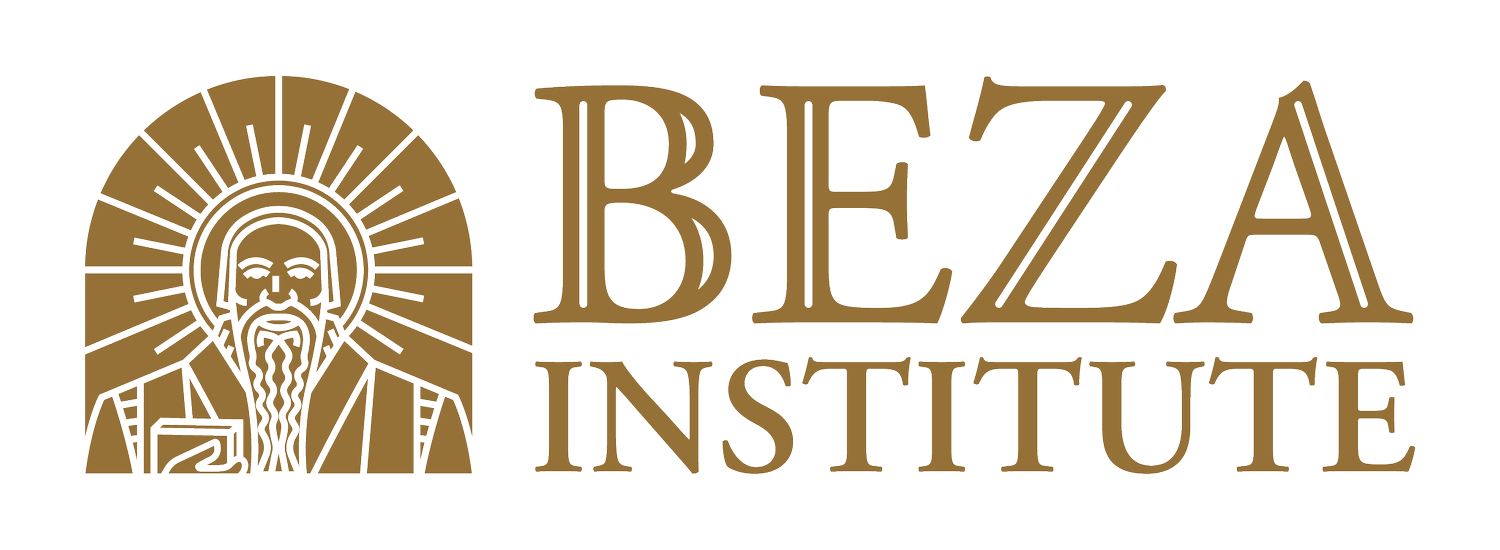On Declamation
“Men of Athens, I perceive that in every way you are very religious. For as I passed along and observed the objects of your worship, I found also an altar with this inscription: ‘To the unknown god.’ What therefore you worship as unknown, this I proclaim to you.”
-Paul (Acts 17:22b-23)
For years as a teacher, I only had to worry about my piece of the pie. Am I teaching this class well? Do I know my material well? Since stepping into the role of both a curriculum developer and a dean of an upper school (7th-12th grade), I have had to start thinking a lot more about the whole pie and how it fits together. I have been thinking about this seemingly night and day for the last 3-4 years.
I am convinced that one of the things most lacking in a lot of the otherwise good curricula out there is continuity. Though a piece of curriculum sold by a curriculum house might be good in itself, too often each piece has been made without reference to the whole pie. It’s like five or six chefs decided to cook one pie but each only thought about a particular slice. Each piece might be glorious, but the pie may be discordant in taste when taken together (especially if some were thinking fruit pie and others shepherd’s pie). That’s why Study the Great Books is working on an integrated 7th-12th grade humanities curriculum, a curriculum that will be “self aware,” working in concert with each part of the wider curriculum, working in coordination as we build our studies of History, Literature, Logic, Composition, and Rhetoric.
I am writing today to talk to you about a piece of the gloriously unified pie of classical Christian education, namely Declamation. If you are not familiar with the term, to declaim simply means to give a formal speech of some sort. Declaiming is an important part of the educational process, but in many schools it gets anywhere from far too little attention to almost none at all.
Education as a process (here I am not referring to form or content) boils down to input and output. What we pour into our students by means of reading great texts, through Socratic dialogue, lectures, etc., is only half of the process of education. The other half is getting the students to pour it back into others. How many things do we think we know until we stand in front of others to tell them all about it? The words dry up, the things we can do ourselves become impossible to impart to others. But masters of something should be able to equip others with it too.
Of course, one way of pouring out what has been poured in is the written word. This mode is extremely important. Good grammar is the basis for all effective communication, and I have often written about the Progymnasmata and Medieval Disputation and discussed them as forms of writing assignments, but even these are indented to prepare students for spoken orations. Writing well is thinking well; it forces us to organize our thoughts and lay them out in a way that is understandable to others. The pinnacle, however, of sharing what you know comes when you are looking people in the eye and telling them matters of importance with your voice. I say this as one who passionately loves the written word. The spoken word is more powerful, especially when you are peering into the windows of the soul (the eyes of your hearers) as you speak.
The best writers are always compensating, in clever and amazing ways, for the fact that tone cannot be heard in writing and that eye contact cannot be achieved. The best writers, perhaps, make you feel as though they have somehow bridged that gap (and may we teach all our students to write so well), but they are aiming at what is only natural to the spoken word. I suppose when they do it really well, what they have achieved is almost supernatural. They have taken you into their spell.
The fact is, however, that the modern form of education has all but dropped the crucial importance of declamation. Maybe you have a public speaking class in high school one year, maybe you elected to join debate, but the majority of students aren’t taken through the proper and continual guidance of learning to speak with wisdom, confidence, authority, and ownership of a room. In classical education, however, this ability to deliver a message to an audience with conviction and persuasive power is supposed to be the crown of the student’s education. If we have given them knowledge to understand how things work, well and good. If we have given them wisdom to live a good life, all the better. But if we have not given them the power to influence their world for the glory of Christ through the written and spoken word, then we have not done our job completely.
The word declamation is derived from the Latin clamo which means something like “I shout” or “I call out.” This gives the sense that a declamation is an impassioned speech. Obviously, we don’t want these sessions to be mere shouting matches, but we do want them to be lively! As classical educators, we are giving our students opportunities to soak in the greatest works of history and literature, to contemplate the Great Ideas of life, and to enter into the Great Conversation and to debate about the most important issues in the world. We should expect students to form their own thoughts about these things and we should demand that they share them with us! It’s no good being a passive learner; we need active participants who not only better themselves but better us as well.
Declamation is the time for students to tell us what they know, what they think, and what they want us to believe along with them. Students should get lively in putting their ideas out there, praising and blaming people, places, things, ideas, and inviting us to do the same. This is where the rubber meets the road in education. Have we given them anything worth talking about? We know that we have! We do them a disservice by allowing them to be silent or merely allowing them to write what was learned quietly and without delivery.
At the school where I work we have begun recently (this year) to have Declamation every Friday at 2pm (our 8th hour class period) and every week every student, 7th and up, must submit a declamation proposal. All students are present, all faculty are present, and it is open to family and friends to attend. Each week students must give me a category for their presentation and a short description of what they intend to present. Presentations may vary widely in length and content. Not everyone will go every Friday, but every student must be ready to go every Friday. Each student has been given a Declamation Card that looks like this:
Students use their cards to keep track of categories upon which they have already delivered declamations. Students are expected not to double-dip into a category very frequently (I allow some exceptions) so that they work on running the gamut of different kinds of presentations. We use our school’s house system to get the students to compete, and we award points to houses based upon student performances according to the final scores of our judging sheets (2 teacher judges, 2 parent judges, and 2 student judges, which change each week). Here is what that looks like:
Judges are also asked to state one thing that they particularly enjoyed about the student’s presentation and one thing that they would suggest the student try to improve for their next go around.
More Reasons Why Students Should Declaim Regularly
1. Declamation Draws Students Out of Their Lonely World
We live in a world of self-absorption, narcissism, and loneliness played out before screens. Declamation forces students to look away from themselves, to look up from screens, to look into the eyes of fellow image bearers and to tell them something worth hearing. The constant exercise of speaking aloud to an audience forces human connections with living, breathing, three dimensional people, and it draws us out of our world of loneliness.
2. Declamation Builds Necessary Courage
It’s scary to say what you think (especially in certain sectors of the world right now), but some things need to be said whether people want to hear them or not. Christians, as a kingdom of priests to the Most High God, have a prophetic responsibility to speak truth into their society. As unnerving as it might be to stand in front of a mixed audience of peers, teachers, and parents (who love you) and declaim your views about something, it is far harder when you have to speak truth to an audience that is actually hostile to what you have to say. I assure you, the Apostle Paul, under Gamaliel’s tutoring (Acts 22:3), delivered many speeches before his teacher and peers before he stood before the philosopher of the Areopagus or the rioting crowds of Ephesus. [1] He probably couldn’t have done the latter without having first done the former. Children need to overcome their fear and gain confidence to be prophets of truth, goodness, and beauty, and regular declamation is a device to help with this.
3. Declamation Puts Our Students at the Head of the Pack
Related to the first two points, drawing our students out of themselves and giving them courage to speak with confidence turns them into doers in this world. People who shake hands, look others in the eye, project confidence, and speak with certainty take on hard things and get them done. The skills that students gain from regular declamation are impossible not to notice in our inverted, self-absorbed, and backwards society. These are the kids who stand out in interviews and who the boss will ask to make that presentation at work. The crown of Rhetoric helps students who have gained knowledge and wisdom become movers and shakers who can rebuild our broken society.
Final Thoughts
Though formal Rhetoric is generally taught in classical schools starting in 9th or 10th grade, we should not wait to have our students declaim. Even grammar school students can begin memorizing and reciting poetry, scripture, short speeches, etc., in preparation for when they will be declaiming their own words instead of the words of others.
We want to develop communities of creators—people who write and present persuasive essays and original poems, who argue for and against theses and laws, and who praise virtue and decry vice. At my school we are inviting not only our students to declaim, but we are asking our teachers and parents to join in as well. What we want to create is a new normal where everyone is writing, speaking, persuading, performing, and glorifying God. I never want to have my students do things I am unwilling to do myself, and I want the adults in their lives to enter into the process as well. It’s good to show students where they can get to someday, but it is also good to show them our imperfections. They are not alone; we are co-laborers in the work of being harbingers of life to a culture of death.
Do not rob yourself and your students of the crown jewel of classical Christian education. Get them out in front of people speaking truth, goodness, and beauty!
Editor’s Note: This article is a lightly edited version of the original from Study the Great Books and is republished here with permission.
Endnotes
[1] Interestingly, Paul’s teacher practiced what he evidently taught, boldness of speech. See Acts 5:33-40.



